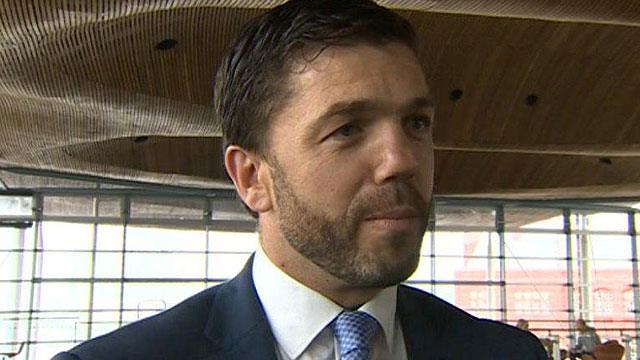Back Plaid on second vote, Labour-supporting academics say
- Published
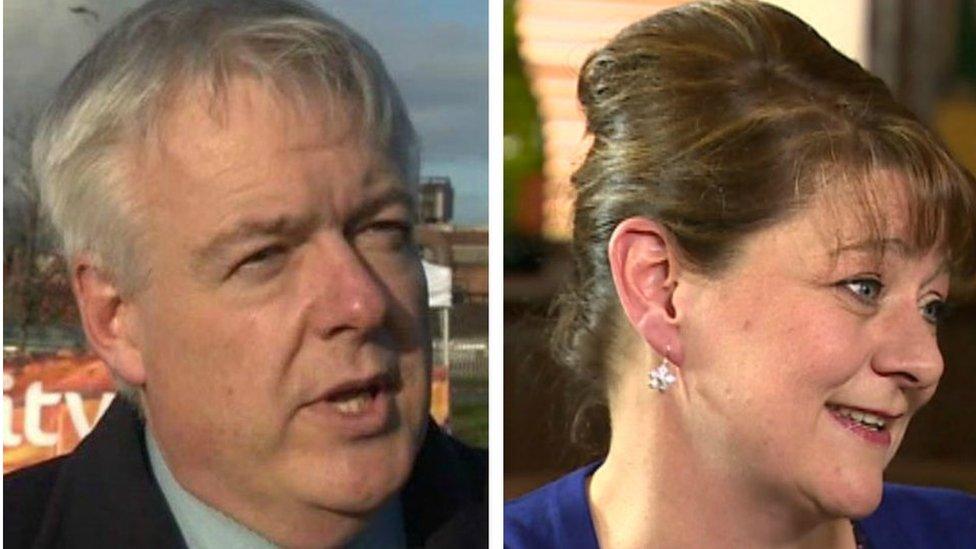
Carwyn Jones and Leanne Wood
Labour voters should give their second vote in the Welsh Assembly election to a party like Plaid Cymru, six Labour-supporting academics have said.
A letter by the group says that in constituencies where Labour does well it "makes sense" for voters to "aid a progressive party like Plaid", and "to block any party that trades in fear".
They said Labour will have to work with others after the 5 May poll.
But Labour said the only choice was between them and a "rag-bag coalition".
The letter, published in the Western Mail on Saturday, is signed by ex-special advisor to David Miliband, Ian Hargreaves, former Welsh Government advisor Prof Gerry Holtham and chairman of the Yes for Wales 1997 pro-devolution campaign Prof Kevin Morgan.
It is also signed by National Museum Wales trustee Dr Hywel Ceri Jones, former Labour MP Prof David Marquand and former Welsh Development Agency economist Prof Brian Morgan.
Purposeful fashion
The letter reads: "As long time supporters of the Labour Party, we are totally committed to the return of a Labour Government in Wales next week.
"But if the polls are correct Labour will not secure a majority in the assembly election and therefore it will have to cooperate in some shape or form with another party.
"Where Labour does well in the constituency section, it fares poorly in the regional list section, which is why so many people think that a second vote for Labour in such areas - like south Wales for example - is a wasted vote.
"In these areas it makes sense for voters to cast their vote in a purposeful fashion - to aid a progressive party like Plaid Cymru and to block any party that trades in fear and prejudice."
The letter adds that a "new political world" is emerging that is "more complex, more uncertain and more challenging than ever before".
'Idiotic scaremongering'
The academics say that "no single party has the knowledge and the talent to deal effectively with this world".
They add: "To meet these challenges the Labour Party needs to be at the centre of a progressive political movement and we can start in Wales next week."
A Welsh Labour source said: "The choice people face next Thursday is between a Labour Government and a rag-bag coalition.
"Voting for Welsh Labour is the only way to stop UKIP in Wales."
A UKIP spokeswoman said the comments were "insulting and idiotic scaremongering".
She said: "This is the left wing trying to consolidate their chances of returning a Labour-led government when they know they are slipping in the polls and when they have failed the public catastrophically since devolution.
"How arrogant to assert that the significant percentage of people who support UKIP should not be represented by AMs."
'Really rattled'
The spokeswoman added: "UKIP is campaigning on a platform of better investment in the NHS, improving cancer care in Wales, a dynamic and bespoke education system where every child has the best chance and better devolved economic development to help boost Welsh business, which, according to these so-called academics, is scary stuff."
A Welsh Conservative spokesman said: "Welsh Labour must be really rattled if they're wheeling out prominent supporters to endorse rival parties just days before an election.
"Ultimately, there's nothing progressive about five more years of Labour failure, and we will continue to offer voters an ambitious alternative and a vision to secure real change for Wales."
Simon Thomas, Plaid's candidate for Carmarthen West and South Pembrokeshire, said: "It is true that those who want to see Wales follow a progressive path after the 5th of May need to vote for Plaid Cymru.
"Labour has proven that after 17 years in government, it is out of steam and out of ideas."

Who are the academics?
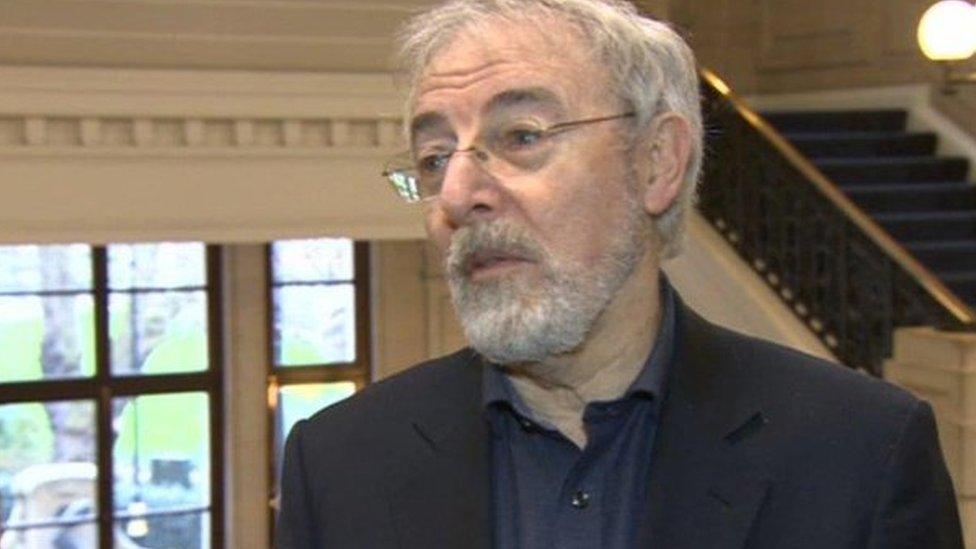
Prof Gerry Holtham
Prof Gerry Holtham is an economist and a former Welsh Government advisor.
Prof Kevin Morgan, of Cardiff University, was the chairman of the Yes for Wales pro-devolution campaign for the 1997 Welsh referendum. He was one of the leaders of the campaign by Rhodri Morgan to become Welsh Labour leader in 1999, external.
Prof Brian Morgan, of Cardiff Metropolitan University, is a former chief economist of the Welsh Development Agency.
Prof Ian Hargreaves is former special advisor to David Miliband.
Prof David Marquand is a former Labour MP and is a principal of Mansfield College at Oxford University.
Dr Hywel Ceri Jones is a trustee of National Museum Wales. He is a former European advisor to the Secretary of State for Wales in 1998-99.

How does the second vote for regional seats work?
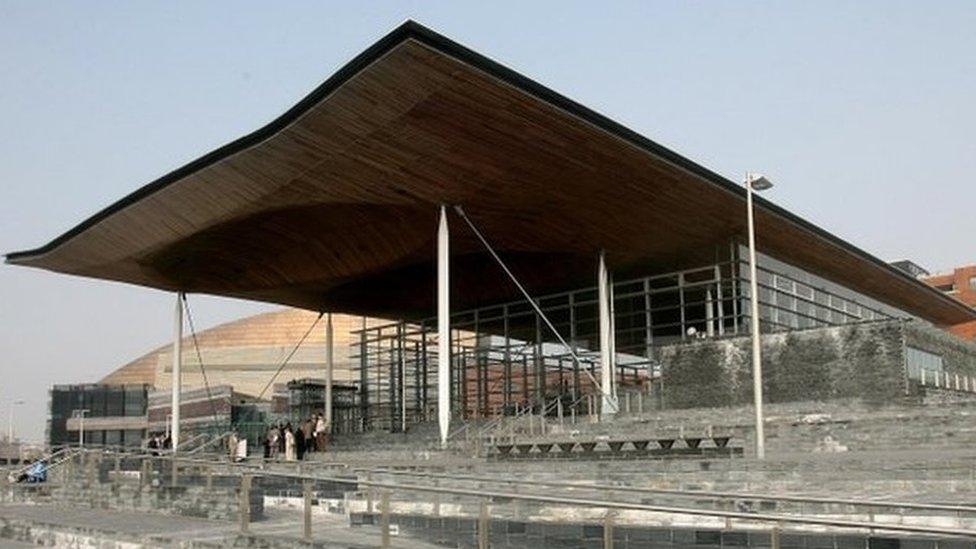
Voters in assembly elections have two votes - one for a candidate to be their AM in a constituency area, and a second for a party to serve them in their region.
The first past the post principle is used to elect constituency AMs - where the candidate with the largest number of votes gets the seat.
For regional seats it is more complicated.
In simple terms, regional AMs' seats are handed out to the different parties according to:
Their share of the vote on the regional list ballot
How many constituency AMs parties have won in the area that night
If a party wins most of the constituencies in a region, it is very difficult for that party to win regional seats.
So if Labour gets a large vote in a region but already has lots of AMs elected in the constituency votes, they will not necessarily pick up any regional seats.
Regional party lists are nominated in the order that candidates will be elected if the party is successful.
For example, if party X only gets one seat in a region, then only their first candidate on the party's list is elected.
If they get two, its first and second candidates on the list are elected.
- Published22 April 2016
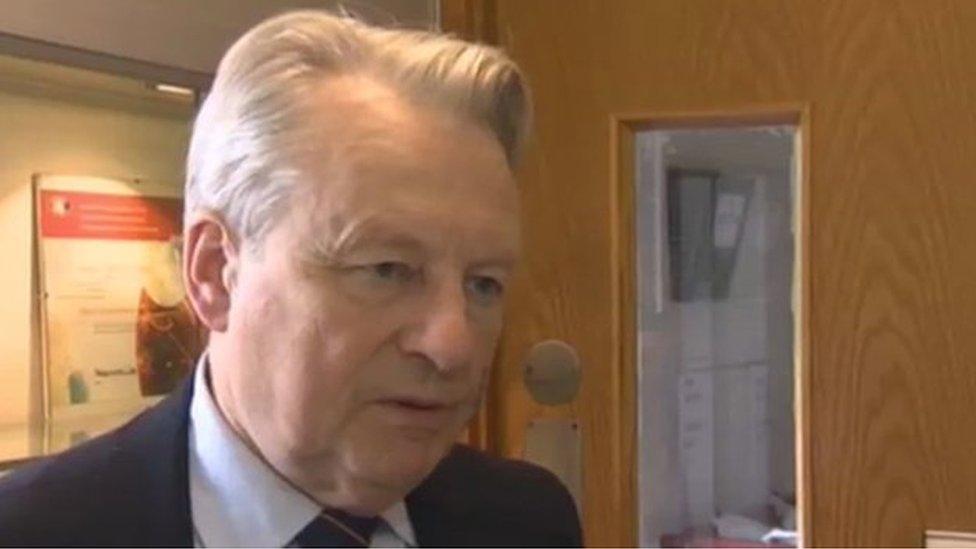
- Published25 April 2016
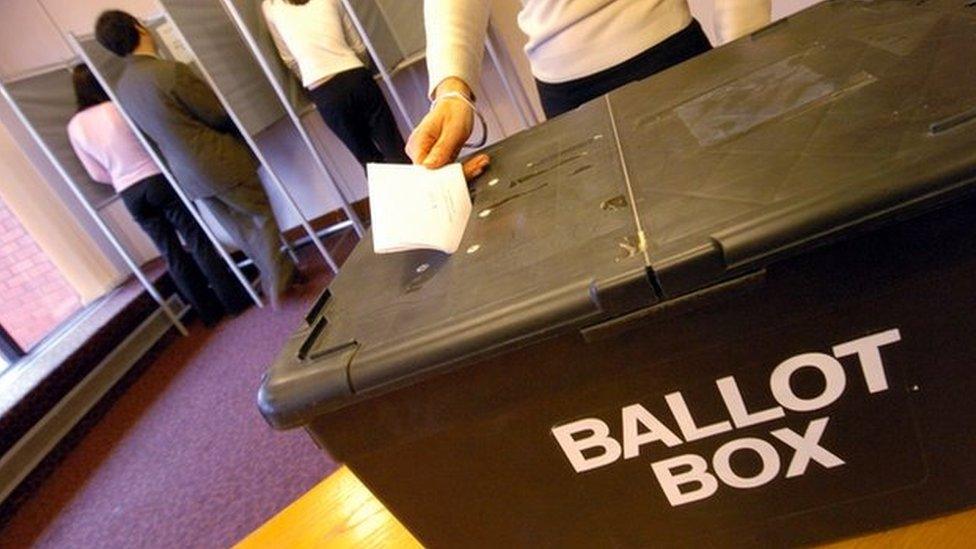
- Published22 April 2016
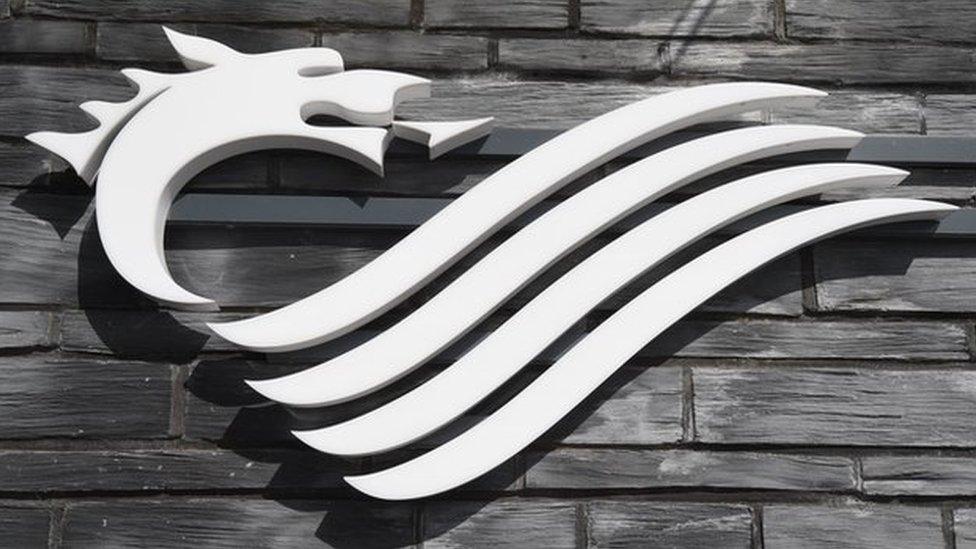
- Published11 March 2015
